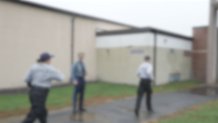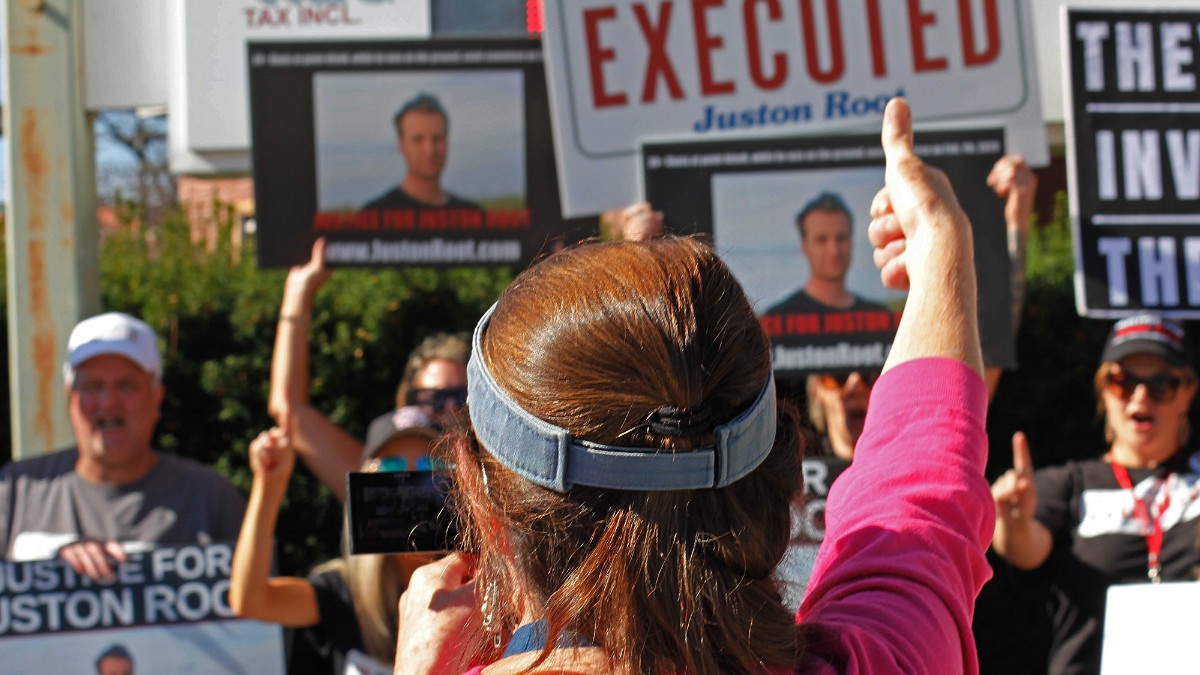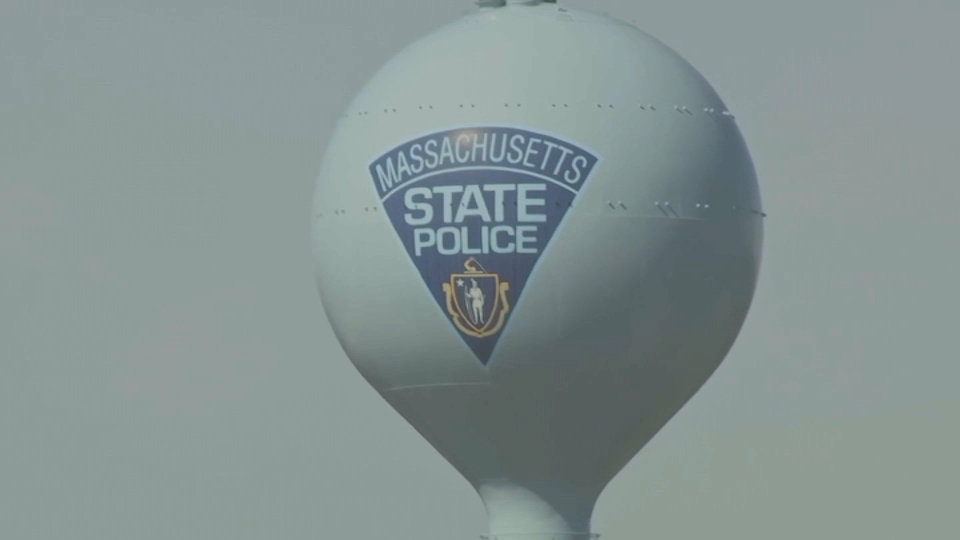In 1996, a female trooper who had been with the Massachusetts State Police for four years was appointed to work in the Middlesex Narcotics Unit. As she began the new position, the woman noticed her male counterparts had been assigned a senior trooper as a mentor. She received no such assignment.
That's when the female trooper said a sergeant in the unit made a startling remark.
WATCH ANYTIME FOR FREE
>Stream NBC10 Boston news for free, 24/7, wherever you are. |
"Women don’t belong on state police and really don't belong on the (the) Narcotics unit," the sergeant allegedly told her.
After filing a complaint with the Massachusetts Commission Against Discrimination — the independent agency that enforces anti-discrimination laws — the female trooper said she repeatedly missed out on promotional opportunities to less qualified men on the force.
Get updates on what's happening in Boston to your inbox. Sign up for our >News Headlines newsletter.
Following her retirement as a sergeant, the woman filed a lawsuit in 2021 that alleged gender discrimination and retaliation against the state's largest law enforcement agency. She spoke with NBC10 Boston and requested anonymity because of the pending litigation.
"I wasn't raised with any thoughts of 'being a woman is different,' which was to my detriment," she said. "I wish I had been a little more wary."
In 1992, Massachusetts state lawmakers voted to consolidate several public safety agencies into the modern-day Massachusetts State Police. Since that decision three decades ago, there has been a steady flow of discrimination cases filed against the public safety agency.
MCAD told NBC10 Boston that nearly 300 complaints — or about 10 per year — have been filed against the state police since 1993. Of these cases, approximately 20% are tied to some form of discrimination based on gender, according to the MCAD.
Many of these discrimination cases remain open, and state employment data shows women are still largely underrepresented across the agency.

Of the more than 3,000 Department of State Police employees, 18.3% are female while 81.7% are male, according to the state's employee diversity dashboard.
Female representation on the force gets even lower when you look at the roughly 2,200 sworn officers, those who have taken an oath to uphold the law and have the unique power to make arrests. According to the employment dashboard, only about 7% of sworn officers are female.
"Through our data, there is definitely a reality to the repeated filings against the Massachusetts State Police," said MCAD spokesperson Justine LaVoye. "There is more we can do in terms of ensuring that it can be a safe place through training, more education or just a change in policy."
NBC10 Boston teamed up with journalism students at Boston University's College of Communication for a deeper dive into the state police. In an in-depth reporting class taught by NBC10 Boston Investigator Ryan Kath, one of the angles we explored is the history of gender discrimination complaints at the predominantly male police force.
People we spoke with said the dynamic can begin at the Massachusetts State Police Academy, where recruits start their career journey with the agency.
The retired sergeant, who trained at the academy in the 90s, recalled part of her experience being tainted by the vast gender discrepancy.
"We were singled out, we stuck out like sore thumbs," the former trooper said. "They always say the worst thing is to draw attention to yourself. Well, being a woman who is in that position, you absolutely can't help standing out."
More recently, a female trainee who dropped out of this year's academy still described issues with the training culture, including being singled out as a woman because of her height.
"You know, one of the things that they actually said to me is, 'Isn't there a height requirement?'" the former trainee said.
During an exercise she described as a form of hazing, she told NBC10 Boston an instructor placed her bag in a spot that was too high for her to reach.
"I was like, 'Wow. They literally just did that on purpose,'" she said. "They always say they want more women, but the way they treat you and the way they make you do things, it's not very fair."
State police said the agency does not tolerate any form of hazing, discrimination or misconduct, and thoroughly investigates all allegations.
Out of 36 female recruits, 17 withdrew from the academy (47%) this year, according to figures provided by state police. By comparison, 82 of the 248 male recruits dropped out (33%).
!function(){"use strict";window.addEventListener("message",(function(a){if(void 0!==a.data["datawrapper-height"]){var e=document.querySelectorAll("iframe");for(var t in a.data["datawrapper-height"])for(var r=0;r<e.length;r++)if(e[r].contentWindow===a.source){var i=a.data["datawrapper-height"][t]+"px";e[r].style.height=i}}}))}();One of the most consequential lawsuits alleging gender discrimination in the Massachusetts State Police was filed in 1998. At the time, the agency had a policy that required pregnant troopers to be sent to a physician for evaluation.
The four plaintiffs were placed on "temporary modified duty," which prohibited them from working overtime, wearing uniforms, interacting with the public, and using their cruisers. A jury later awarded the plaintiffs $1 million in damages, along with an additional $300,000 for emotional distress.
Over a decade later, the Massachusetts State Police was ordered to pay $20,000 in emotional distress after a female sergeant was denied equal access to locker and break rooms in her troop at Logan Airport.
According to a hearing officer at MCAD, the state police "effectively created a men's clubhouse that excluded women."
Another lawsuit filed in 2019 and still pending in Suffolk Superior Court claims a female unit commander was prohibited from teaching as an additional source of income, while her male colleagues were allowed to have outside employment.
Lisa Brodeur-McGan is an attorney who has represented plaintiffs in 17 different discrimination complaints filed against the Massachusetts State Police with the MCAD or civil court. The majority of the cases are pending and involve allegations of discrimination based on age, race or gender.
Brodeur-McGan said over the years, she has seen a repeated failure to promote or select people fairly, particularly to the agency's valuable specialty positions.
"State police could reduce discrimination of gender and race if they simply followed nationally recognized selection process standards and had true oversight," Brodeur-McGan said. "The employment selection standards that are ignored are all well known and time tested."
Tim McGuirk, a spokesperson for the Massachusetts State Police, said the agency is committed to improving the representation of women in state law enforcement with the "30×30 Pledge," a national program with the goal to have 30% of police recruit classes be women by 2030.
Another initiative is a cadet program that immerses young people in the life of a state police career before choosing to enter the academy as a recruit. The first two cadet classes have drawn 27% and 23% female recruits, respectively.
"The Massachusetts State Police remains deeply committed to ensuring our workforce is reflective of the communities we serve," said McGuirk in a statement. "Our mission to deliver the highest quality police services depends on our responsibility to recruit a diverse workforce and elevate individuals from every background."

The current budget approved a new promotional process that requires officers to have served at least five years as a uniformed member to be a noncommissioned officer, or at least eight years to be a lieutenant.
"The Department believes that the new promotional process will increase leadership opportunities within the supervisory ranks for previously underrepresented individuals, including women and minorities," said McGuirk.
While there are goals set forth by the organization to increase the number of women serving and experiencing promotions within the agency, the recent appointment of Geoffrey D. Noble as Colonel of the Massachusetts State Police did not come without controversy.
"He is a principled, respected leader who is widely praised for his integrity, compassion and ability to bring people together," said Gov. Maura Healey in her announcement.
More from Commonwealth Confidential
Although Healey's review was promising, the appointment raised questions from police reform activists regarding Noble's past with the New Jersey State Police.
Noble was named as a defendant in at least four lawsuits, alleging his participation in discriminatory practices in the hiring process, The Boston Globe first reported. He allegedly discriminated against or oversaw discrimination against people of color, women, and members of the LGBTQ+ community during his time in his former department and fostered a negative work environment.
Two of the lawsuits are still pending, all of which allege discrimination by the New Jersey State Police and its command staff. Noble has declined to comment on the legal complaints, instead looking forward to his plans for Massachusetts.
"The hardworking men and women of the State Police show up every day to keep the people of Massachusetts safe," Noble said in a statement regarding his appointment. "They deserve a leader who is accessible, transparent and committed to the highest standards of integrity and excellence."
The retired sergeant we spoke with was happy to see Healey buck a longtime tradition by bringing in a colonel from outside the agency for the first time. She remains optimistic state police can make progress and reverse the trend of gender discrimination allegations.
"We've been rotting at the top," she said. "The younger people coming on the job are way more accepting and way more worldly. There is still hope."”"
This story was written by BU students Tucker and Hibbert and edited by Kath



